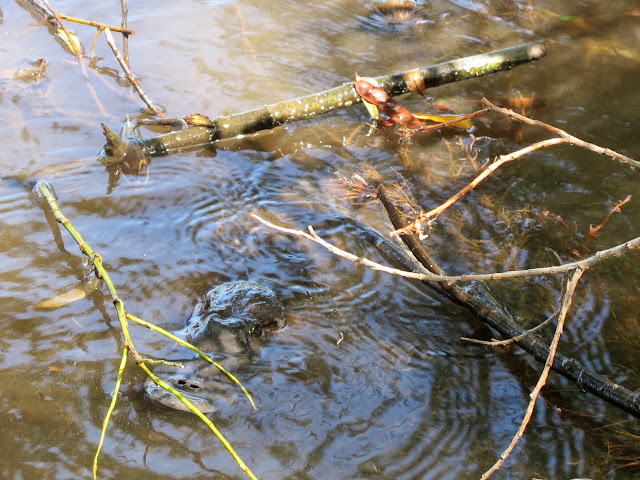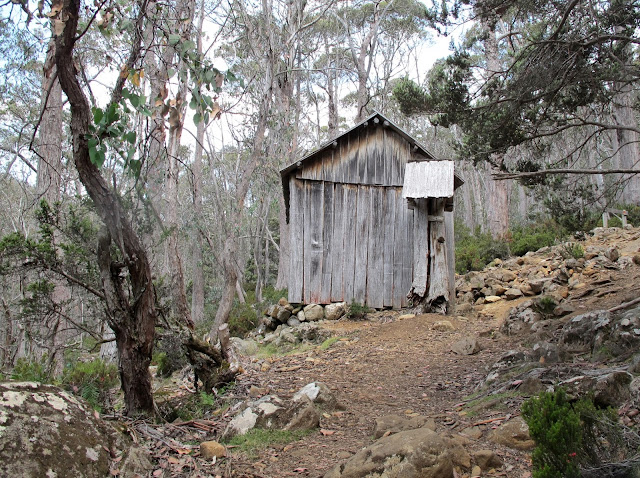I just got back from a pretty
short-notice trip to Tasmania – and it was fantastic!! I have definitely been
bitten by the Tassie bug and hope to go back many more times to explore more of
this island state (that’s an Australian state, not a sovereign state…)
The main aim of this trip was to
do some hiking, but being short notice there was no time to particularly build
up any load-carrying fitness, so I wasn’t confident of doing a point-to-point
hike, carrying everything on each leg. Instead therefore, we opted for a basecamp style of
hiking, setting up our tent on arrival, and making day hikes out from our base.
Deciding that the place to be was the Walls of Jerusalem National Park, within the Tasmanian Wilderness World Heritage Area, our brief research showed us
that we had to buy a permit before heading to the Park. We would also need to
make sure that we took a camp stove and cooking gear that would not interfere
with the natural environment, and a trowel for burying anything we left behind
when there was no access to toilets. All food and gear would need to be carried
in on foot, and all rubbish would need to be carried back out again too.
Our trip began in Hobart, where
we had a little time to top up our kit with things that were deficient or that
we couldn’t bring on the plane – we needed to get our map, gas for the Jetboil, camping food,
snacks, I needed some long trousers, and additionally we just browsed the outdoorsy
shops and book shops in Hobart, enjoyed the Salamanca Markets, and took in far more hearty food
and good beer than was necessary.
Before heading out to a National
Park in the Tasmanian Wilderness with plenty of kit that we had never used
before, I decided that it would be a good idea to camp somewhere with
facilities, somewhere that we could use all our gear, but if all went wrong then we wouldn’t be actually
stranded. For our shake-out camp we headed to the small town of Deloraine, much
closer to the Walls of Jerusalem National Park and boasting a riverside camping
area.
 |
| Slightly melodramatic sign at the campsite |
We set up the tent (a 3 person
Vango Banshee) with no dramas, all the appropriate sleeping gear was there. The
Jetboil worked just fine, and we even tested out our experimental purchase of a
tube of condensed milk for our brews. This worked surprisingly well I have to
say, and I enjoyed my riverside cuppa very much. The evening was perfected by
watching playful duckbilled platypuses – the first I had ever seen – swimming about
in the river. They were adorable, and I absolutely fell in love with them. The happy
memories of watching them in the river was even enough to sustain my good mood
through the various times during the night that I was woken by ridiculously loud
trains passing next to the camp site, their horns blaring continuously and their
lights making it bright as day inside the tent.
 |
| A platypus, having a good look at me having a good look at him. |
The next morning we repacked all
our gear, and I was pleasantly surprised to discover that the Vango Banshee was
pretty easy to pack away again back into its original neat format and small size. Getting breakfast
on the way, the next stop was in Mole Creek to find out exactly where to buy
the Parks passes from. The lady I spoke to directed us to the visitor office for King Solomon’s Caves
down the road, from where we could purchase passes. This was pretty straight
forward too; the Ranger did a quick sanity check on us to make sure we knew we
couldn’t just bumble around the Park for a day visit and had the right gear,
and the passes weren’t too pricey either at $30 each - another nice surprise.
There was now nothing stopping
us, so with all kit for living and camping for 3-4 days packed into our larger
hiking rucksacks, we headed for the NP. It took a fair amount of driving on
gravel roads to make it to the car park for the NP, and then the only way into
the actual Park is on foot. Following a well-defined track from the carpark, we
signed into the Park at the unmanned Ranger Hut and then continued through the
woods, heading mostly fairly steeply uphill, towards the Park.
 |
| The road towards the National Park |
We went at a steady pace, and I was
relieved to find that my pack didn’t feel like it was getting any heavier as I got
more tired. I put this down to the 'Bioflex' harness on my 10-year-old 65+10
litre Berghaus pack, which was well padded, fully adjustable, and extremely
comfortable. This is the first time I have properly used my rucksack for real
active stuff rather than just backpacking trips, so it was great to find that
the harness was really comfortable even with a heavy load over rough terrain
for several hours.
 |
| Part of the first section of trail, heading into the National Park |
A few steep sections of trail, broken by
short less-steep sections and occasional small creek crossings that were
almost dry at the time we were hiking, brought us eventually to the Trappers
Hut. This is a small wooden hut which is part of the history of the trail, and
contains information boards to tell its story. Just upslope from the hut was a
fallen tree and some exposed rocks which made a very convenient spot for a sit
down and a brew, so we took our first break and fired up the Jetboil.
 |
| The Trappers Hut |
Refreshed, we carried on upwards through
the trees along the defined trail, until the steepest part of the trek in was over and we had
reached more of a plateau region. Here the trees thinned out giving bigger
views, and the ground was dotted with pretty tarns, named King Solomon's Jewels.
The trail continued to wind its
way over the landscape, now more winding and with shorter and gentler climbs
and descents. Here the path was dirt, there it passed over a section of rock.
Here it pushed through shrubbery, there it passed the edge of a tarn. Each short
climb or bend produced new and spectacular views.
Eventually, after more winding
and undulation, the path led through some hilly parts to a bit of a valley
floor, on the other side of which you could just make out the brightly coloured
shapes of tents. A boardwalk continued the path across the valley and deposited
us at Wild Dog Campsite.
Relieved to have arrived – no
matter how comfortable the pack was I still had my limitations – I picked the
first free camping platform I came across and dropped all my gear. Removing my
boots felt gooood!! Having lived in north Queensland for over a year now, I
rarely wear anything but flip flops (or ‘thongs’) so am not accustomed to
walking in boots.
Camping on a wooden platform
presents its own challenges, especially when your tent cannot stand by itself,
like the Vango Banshee which is a tunnel construction and so requires tension in the fly sheet to keep it up. Eventually though, with a bit of ingenuity, perseverance,
and some advice and extra string from the family on the next platform along,
our home was erected and it was time for a warm jumper, a brew and some dinner.
It felt fantastic to finish off the
day’s walking with some warm food prepared with a camp stove (even if the only
preparation required for the freeze dried food we had chosen was to boil up some water and
stir…), and another hot, sweet brew.
As a bit of a luxury I had
brought some entertainment in the shape of a pack of cards and my Kindle
Paperwhite. Playing ‘beanie’ until dark and then tucking into my layers of
sleeping bag and liners, reading until sleepy, I felt very content :)





No comments:
Post a Comment